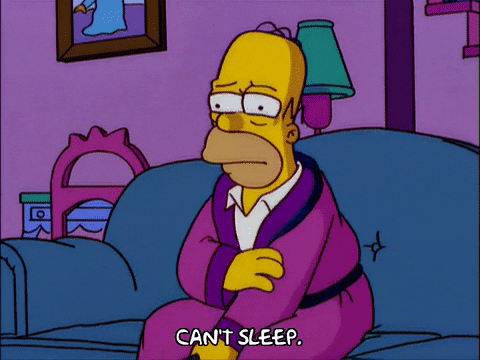I’ve been traveling this week, switching time zones, trying to sleep in strange beds, and loading up with caffeine so that I wouldn’t fall asleep on the Turnpike. I had a lot of time to think about sleep. We do not value sleep in American culture; we are all supposed to hustle and grind and get things done. Sleep is for the weak!
One of my college roommates was a varsity athlete (the real deal: All Big Ten, Academic All-American, NCAA Final Four team), and when she was in season, she slept three hours every afternoon and three hours every night.
Most of my life, I was so sleep-deprived that I rarely had trouble sleeping when I finally got the opportunity to crawl under the covers. I worked for an investment bank in San Francisco, which meant keeping New York hours: 5:30 am Pacific is 8:30 am in Manhattan. I had a baby who didn’t like to sleep. Back in the Midwest, I often had to get up very early to handle my workload and family obligations. Then the kid who didn’t sleep became a swimmer, so I had to take him to 6:00 am practices. He left home, and I slept and slept and it was heaven.
Then the pandemic happened, and the existential dread kept me awake for hours. Now, I’m often sleep deprived, but I still have trouble sleeping.
I wish I had great advice, but I don’t. Everyone knows that sleep is a problem for just about everyone, from infants onward, but no one really has it all figured out. If we could simply sleep whenever we were tired and get up when we weren’t, it would be so easy, but it’s not. Johns Hopkins has a list of tips, including not dwelling on your inability to sleep. Gosh, if only I could stop doing that!
Not helpful, Johns Hopkins.
The Department of Defense has a method for helping soldiers fall asleep quickly, and it sometimes works for me. It’s worth a try, no prescription necessary.
Got any great tips? Please, leave them in the comments!





